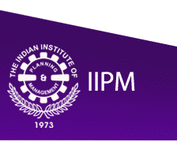4Ps Business & Marketing, in a strategic alliance with the new york times service, presents a column by howard Schultz, Chairman, President and CEO of Starbucks corporation
Great global brands do not succeed across cultures because they are cool or trendy. They succeed because they remain relevant to people inside as well as outside the company – regardless of where they were founded or where in the world they operate.
That’s why, as an organisation grows beyond its home borders, its leaders must be sure to export the company’s culture as well as its products.
This has been Starbucks’ strength as well as our greatest challenge since we first decided to open a store outside North America in 1996. Back then, none of our senior leaders had any international experience. In fact, we hired a consultant who came in and essentially told us that our plan to expand into Japan wasn’t going to work. Our no-smoking policy for our stores would be a disaster. Japanese customers wouldn’t walk around the streets with coffee in a paper cup. But our conviction that we had something universal to offer customers in addition to our coffee – a place to personally connect with others – pushed us forward, and we opened our first store in Tokyo.
Fifty-four countries later, our conviction has not wavered, yet more than at any other time in our history, we are asking ourselves how to remain relevant as times change.
For our coffee and our food, we have learned that each should reflect regional tastes and traditions but not deviate too far from our core. A vanilla latte in Zurich should taste the same as one in Chicago. In China, Starbucks stores would probably not sell noodles for breakfast; but we would – and do – include popular Chinese flavours such as sesame and green tea in our Frappuccinos. People don’t want from us what they can get down the block, but they appreciate our efforts to put a local twist on a muffin.
Even more important than our products, however, are the company’s guiding principles of respect and dignity, which fuel the personal connections we try to make with customers.
Instilling such internal values beyond a company’s home country is crucial, but it does not come with a handbook of instructions. It’s a subtle task, and there are concrete steps we’ve learned along the way that hold true to any company. These include dedicating enough resources from the outset to put the right culture in place, and launching a new market under the guidance of long-term employees to ensure that like-minded talent is hired. Local leaders can then model the behaviour they want their people to emulate, celebrate behaviours they want to perpetuate and listen to what is important to the people they hire.
For more articles, Click on IIPM Article
Source : IIPM Editorial, 2012
An Initiative of IIPM, Malay Chaudhuri and Arindam chaudhuri (Renowned Management Guru and Economist).
For More IIPM Info, Visit below mentioned IIPM articles.
IIPM ranked No 1 B-School in India
domain-b.com : IIPM ranked ahead of IIMs
IIPM: Management Education India
Prof. Rajita Chaudhuri's Website
IIPM in sync with the best of the business world.......
Arindam Chaudhuri on Internet.....
Arindam Chaudhuri: We need Hazare's leadership
Professor Arindam Chaudhuri - A Man For The Society....
IIPM: Indian Institute of Planning and Management
Planman Technologies
IIPM Contact Info
IIPM History
IIPM Think Tank
IIPM Infrastructure
IIPM Info
IIPM: Selection Process
IIPM: Research and Publications
IIPM MBA Institute India
IIPM Best B School India
--------------------------------------------------------------------------------------------------------------------------


 RSS Feed
RSS Feed